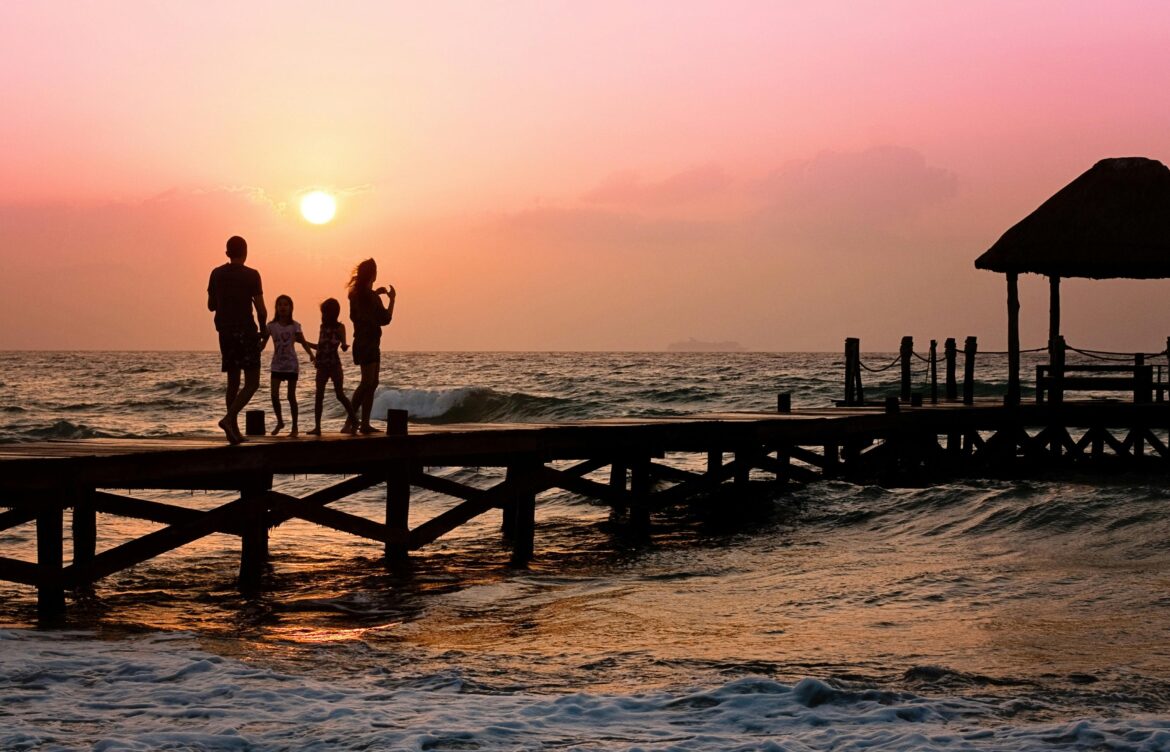
Gap year ahead? 5 crucial tips every parent must know before their child jets off
A gap year is a fantastic opportunity for young travellers to experience other cultures and gain new experiences and independence. But for parents, it often brings a wave of worry alongside the excitement.
To help families prepare for this big step, Sarah Rodrigues, a travel expert working with specialist travel insurance provider Avanti Travel Insurance shares her top tips for supporting young adults as they head off on their travels.
- Sort Travel Insurance First
Before anything else, Sarah advises getting comprehensive travel insurance tailored to your child’s destination and length of stay:
“Start with travel insurance: be sure to take out a comprehensive policy that caters for the countries they’re visiting and length of trip. It should cover things like their belongings, emergency medical expenses, repatriation, trip cancellation, curtailment and any adventurous activities, such as hiking or scuba diving, that they might want to try. If they have any pre-existing medical conditions, including food allergies, asthma, or diabetes declare them on the policy. It’s worth keeping a copy of the policy yourself and making sure you both know how to access the emergency contact numbers if needed.”
Travel insurance policies can only be purchased by individuals aged 18 or older. For travellers under 18, a parent or guardian must purchase the policy on their behalf. However, if the traveller is 18 or older, they will need the traveller’s consent to access any details related to the policy.
And don’t forget the health essentials. Make sure they’re up to date on recommended vaccinations for their destination, and pack enough prescription medication to last the trip, along with a basic first aid kit.
- Create Copies of Important Documents
Losing a passport or other important documents can be distressing, especially when abroad.
Sarah suggests: “It’s a good idea for both of you to have digital and printed copies of all their important documents like their passport, visa, insurance, driving licence and emergency contact details. If something gets lost or stolen, having quick access to that information can make a big difference.”
Make sure they’ve saved these securely, and that you have copies too in case of emergency.
- Discuss Money Management
Managing money abroad is another learning curve. Sarah suggests using prepaid travel cards for safety and ease.
“Discuss how they’ll manage money abroad. Prepaid travel cards can be a safe and convenient option: not only do they help with budgeting, but they are also easier to replace than bank cards if they get lost.”
If they plan to use online banking, remind them to stick to secure networks and avoid logging in on public Wi-Fi.
- Have Tough Conversations
Some topics can feel awkward to bring up but they’re just as important as flights and packing lists.
“Talking about safe sex may not be the most comfortable conversation to have, but it’s a necessary one. Not only do adolescents need to be fully aware of issues of consent, but they should also know where and how they can access items such as condoms on their travels, as well as how to get sexual health advice at a clinic, if necessary.”
Alcohol can also pose unexpected risks abroad, particularly with reports of counterfeit or unregulated drinks circulating in some regions.
“Given recent reports of home brewed alcohol with dangerous substances such as methanol laced drinks in hostels can pose a serious risk. Educating them about the dangers of accepting unbranded or unregulated drinks is important and doing their research of the local area before they go is crucial. While backpacking and drinking may go hand in hand for some, they should be aware that consuming too much alcohol could not only put them in dangerous situations but also lead to serious health issues. They should also know that accidents and injuries abroad that occur from over excessive drinking may invalidate their travel insurance if they’re found to be intoxicated.”
If you make a claim for an unexpected incident that happened while you were under the influence, your provider may not cover it. So, it’s important to remember that and urge them to stay safe.
And while tattoos and piercings can feel like part of the gap year adventure, they come with health warnings too.
“Additionally, no matter what your personal feelings are about body art, tattoos and piercings are often gap year rites of passage. Talk to your children about hygiene and safety tips to reduce the risk of infection. Keeping a tattoo covered, clean and out of water and sunlight help the healing process. It’s also worth mentioning that their travel insurance is unlikely to cover them if they need medical treatment which has been caused by a tattoo or piercing so it may be best to wait till they get home.”
- Research Local Customs and Laws
Finally, she says:
“Research the countries they’re visiting. Understanding local customs, basic laws and safety tips can help them avoid issues allowing them to get more out of their travels. A little preparation goes a long way and will help them feel more confident navigating new places.”
This includes respecting dress codes and religious practices, which can vary widely between countries.
Letting your child head off on a gap year is a big milestone for them and for you. By taking time to prepare together, you can help make their trip as safe and rewarding as possible.
 Mattie Hubbard is a distinguished figure in the field of sustainable agriculture, known for her innovative approaches to environmentally friendly farming practices. With a deep-rooted passion for the earth and a commitment to ecological balance, Mattie has become a leading voice in promoting sustainable methods that benefit both the environment and the farming community. Her work often involves integrating traditional agricultural knowledge with modern techniques to create systems that are both productive and sustainable.
Mattie Hubbard is a distinguished figure in the field of sustainable agriculture, known for her innovative approaches to environmentally friendly farming practices. With a deep-rooted passion for the earth and a commitment to ecological balance, Mattie has become a leading voice in promoting sustainable methods that benefit both the environment and the farming community. Her work often involves integrating traditional agricultural knowledge with modern techniques to create systems that are both productive and sustainable.
